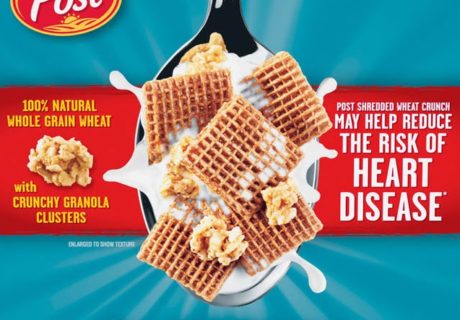Alex Smith has been on a mission – now achieved – to make his company Alara Wholefoods “the most sustainable food manufacturer on Earth”. It’s a big claim and one he wants to be challenged on, as he explains here to NPN editor Jim Manson
“I believe it is essential that we plan and work for society to become sustainable as having sustainability imposed on society would be catastrophic. Being the most sustainable food manufacturer on Earth is a good foundation from which we can use the business and the three tools it provides – money, knowledge and influence – to do what Alara can, and what I can, standing on the shoulders of Alara, to move society towards what I’d say could be an amazing sustainable future that is just over the horizon for human society.
Making this claim and being challenged on it helps us understand more and refine our model, as we substantiate it by saying that there are four foundational elements of sustainability. There’s a financial foundation, a social foundation, an environmental foundation and, very importantly, a governance foundation and we have set a measure in each of these elements.
Our financial measure is COD (cash on delivery ). It’s easy to measure and simple to understand. Any company could do it if they wanted to and is very profit generative for us.
“We think being a creditor-free business is an appropriate financial measure for a whole series of reasons”
We think being a creditor-free business is an appropriate financial measure for a whole series of reasons. First of all it absolutely supports all of our suppliers. They don’t have to wait for money from us. If everybody paid immediately, money would move around the economy much, much faster. It recognizes that food is more important than money and means we cannot waste anything.
Our social measure is great parties The social foundation is understanding that the whole is greater than the sum of its parts. So when we bring people together there are some really amazing developments which emerge when all these intermeshing skills, aspirations and resources are shared.! Again it’s a very simple measure – anyone can have a party! We always have two parties every year, but we also host quite a few others as well. Last year, for example, we hosted the international permaculture convergence gathering and had about 1,000 people here from all over the world. The first annual event is a wassailing party in January, when we wake up the 200 fruit trees round our factory in Kings Cross ( the apple trees are especially lazy ). The second is a harvest festival celebration in September, this year on Friday 16th at 6pm, you are all very welcome to come and celebrate with us.
Governance is the issue a lot of people forget about when it comes to sustainability. It’s about how you formally relate to society. Our Governance measure is transparent audits. As a food business we get audited a lot and we make all of those audits, done by our food customers as well as bodies such as the health and safety inspectorate available on our website. Anybody can go there and see, from a completely independent perspective what’s happening at our factory and the conditions in which people’s food is being made. We think this is an appropriate governance measure for a food manufacturer and one any manufacturer could do.
The global food chain emits about one third of all climate change gas so I believe the most appropriate environmental measure for us is Carbon In. Here we take responsibility for all the CO2 equivalent in all of the food that we sell.
” … the most appropriate environmental measure for us is Carbon In. Here we take responsibility for all the CO2 equivalent in all of the food that we sell”
Over the last twenty years we have built a database which is used to control the business and which we extended to calculate and report on this CO2 equivalent every month. With this information we are able to do two things – one is acting to reduce embedded emissions and the other is to work with a charity called the Rainforest Saver to sequester what remains. Rainforest Saver works with indigenous farmers in Africa and Central and South America, introducing an alternative to the slash and burn farming which still causes 40% of all deforestation today.
The money we provide helps develop Inga Ally Cropping projects that prevent slash and burn farming and also sequesters carbon in both the Inga trees and the mulch they produce . We are currently estimating the equivalence between the funding level and the sequestration effect and have this better than balancing. Feedback on all this very welcome.
My new mission after all of this? It’s very simple. Promoting sustainability. It’s why Alara exists now and what I feel is a reasonable thing to do with this miraculous gift I’ve been given; being alive now.”
Picture: Alex Smith in the permaculture forest garden alongside Alara’s factory and offices in London’s King’s Cross





